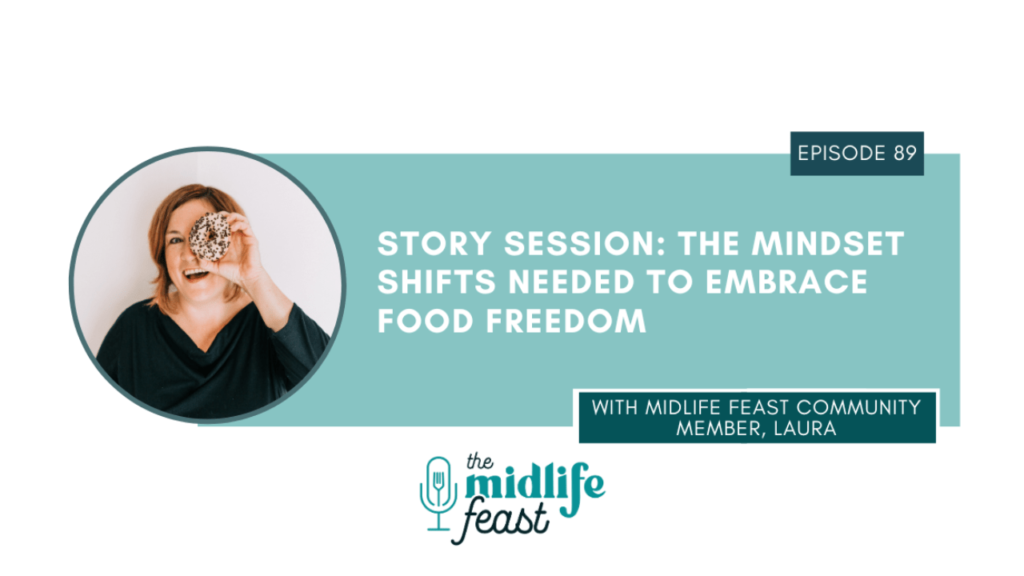Are you struggling to maintain a ketogenic lifestyle? In this article, you will discover the key mindset shifts that can propel you towards long-term keto success. By adopting these shifts, you will not only achieve your weight loss goals but also develop a sustainable and fulfilling relationship with food. Say goodbye to restrictive diets and hello to a healthier, more balanced approach to eating. So, get ready to shift your mindset and unlock the secrets to lasting keto success.
Understanding the Keto Diet
What is the Keto Diet?
The Keto Diet, short for the ketogenic diet, is a low-carbohydrate, high-fat diet that has gained popularity for its potential health benefits and weight loss results. By significantly reducing your carb intake and increasing your fat consumption, your body enters a metabolic state known as ketosis. In ketosis, your body becomes efficient at burning fat for energy instead of carbohydrates.
How does the Keto Diet work?
The primary goal of the Keto Diet is to shift your body’s energy source from carbs to fats. When you consume fewer carbohydrates, your insulin levels drop, and your body starts using stored fat as its primary fuel source. As a result, your body produces ketones, which serve as an alternative energy source for your brain and muscles.
Benefits of the Keto Diet
The Keto Diet has been associated with various health benefits. Some individuals follow this diet for weight loss purposes, as it can promote fat burning and reduce appetite. The Keto Diet may also help improve insulin sensitivity, stabilize blood sugar levels, and decrease the risk of chronic diseases like type 2 diabetes and heart disease. Additionally, some people report increased energy levels and mental clarity while following the Keto Diet.
Setting Realistic Goals
Why setting goals is important
Setting realistic goals is crucial when embarking on any dietary change, including the Keto Diet. Without clear objectives, it can be challenging to stay motivated and measure your progress accurately. Goals provide a sense of direction, allowing you to track your achievements and celebrate milestones along the way.
How to set achievable goals
To set achievable goals, start by clearly defining what you want to accomplish. Make sure your goals are specific, measurable, attainable, relevant, and time-bound (SMART goals). For example, instead of saying, “I want to lose weight,” a SMART goal could be, “I aim to lose 10 pounds in the next three months by following the Keto Diet and engaging in regular physical activity.”
Monitoring progress
Regularly monitoring your progress is essential to ensure you stay on track with your goals. Keep track of your weight, measurements, and any other relevant markers that align with your objectives. Consider using a journal, a mobile app, or a spreadsheet to record your progress. Celebrate your achievements along the way, and don’t be discouraged by minor setbacks. Remember, progress is not always linear, and the journey towards your goals may have its ups and downs.

This image is property of thinlicious.com.
Embracing a Lifestyle Change
Transitioning from a short-term diet to a long-term lifestyle
To experience long-term success on the Keto Diet, it’s essential to view it as a lifestyle change rather than a short-term diet. Embrace the idea of making sustainable dietary choices and developing healthy habits that you can maintain for the long haul. By adopting a positive mindset and focusing on the benefits of a ketogenic lifestyle, you’ll set yourself up for lifelong success.
Developing new habits and routines
Changing your eating habits and routines is a vital part of transitioning to a ketogenic lifestyle. Incorporate meal planning and preparation into your weekly routine, ensuring you have keto-friendly meals and snacks readily available. Experiment with new recipes and ingredients to keep things interesting and prevent boredom. Surround yourself with resources that support your new habits, such as keto-friendly cookbooks and online communities.
Dealing with social situations and temptations
Social situations and temptations can often pose challenges when following a specific diet. The Keto Diet is no exception. Handling these situations with grace and determination will help you stay committed to your goals. Communicate your dietary needs and preferences with those around you, and don’t be afraid to ask for accommodations or to bring your own keto-friendly dishes to social gatherings. Remember, staying focused on the long-term benefits of the Keto Diet can help you resist short-term temptations.
Adapting to Individual Needs
Customizing the Keto Diet for personal preferences
One of the keys to successfully following the Keto Diet is customizing it to fit your personal preferences and lifestyle. While the general principles of the diet remain the same, you can tailor it to suit your taste preferences and dietary restrictions. Experiment with different keto-friendly foods and recipes to find the ones you enjoy the most. Whether you prefer savory or sweet flavors, there are countless options to satisfy your taste buds while staying in ketosis.
Adjusting macronutrient ratios
The standard macronutrient ratios for the Keto Diet are typically around 70-75% fat, 20-25% protein, and 5-10% carbs. However, these ratios can be adjusted to better align with your individual needs and goals. Some individuals may find success with slightly higher protein intake, while others may benefit from a lower carb allowance. It’s important to listen to your body and make gradual adjustments to find the macronutrient ratios that work best for you.
Incorporating intermittent fasting
Intermittent fasting, or IF, is a dietary practice that involves alternating periods of eating and fasting. It can be combined with the Keto Diet to enhance the effectiveness and benefits of both approaches. Intermittent fasting can help regulate hunger hormones, improve insulin sensitivity, and promote fat loss. Experiment with different fasting protocols, such as the 16/8 method (fasting for 16 hours and eating within an 8-hour window), to find the approach that suits your lifestyle and goals.

This image is property of thinlicious.com.
Maintaining a Balanced and Nutritious Diet
Importance of nutrient-dense foods
While the Keto Diet emphasizes low-carb and high-fat foods, it’s essential to prioritize nutrient-dense choices to support overall health and wellbeing. Focus on incorporating foods with a wide range of vitamins, minerals, and antioxidants. Choose lean sources of protein, healthy fats, and plenty of low-carb vegetables to ensure you’re getting a diverse range of nutrients.
Incorporating a variety of vegetables
Vegetables are an important part of any balanced diet, including the Keto Diet. While some vegetables may be higher in carbohydrates than others, there are still plenty of low-carb options to choose from. Leafy greens, cruciferous vegetables (such as broccoli and cauliflower), zucchini, and bell peppers are excellent choices that are packed with essential nutrients and fiber. These vegetables can help support digestion, promote satiety, and contribute to overall health.
Addressing micronutrient deficiencies
As with any restricted diet, it’s essential to pay attention to potential micronutrient deficiencies. Some nutrients, such as fiber, certain vitamins, and minerals, may be naturally lower in a ketogenic diet. To address this, consider incorporating a variety of low-carb, nutrient-rich foods. Additionally, you may want to consult with a healthcare professional or a registered dietitian who specializes in the ketogenic diet to ensure you’re meeting your micronutrient needs.
Avoiding Common Pitfalls
Overemphasizing keto-friendly processed foods
While there are many keto-friendly processed foods available on the market, it’s important not to rely solely on these products to meet your dietary needs. Many processed keto options may be low in carbs, but they can still lack essential nutrients and contain unhealthy ingredients. Focus on whole, unprocessed foods as the foundation of your diet. Incorporate healthy fats, lean proteins, and low-carb vegetables to create a well-rounded and nutrient-dense meal plan.
Relying too heavily on artificial sweeteners
Artificial sweeteners, such as sucralose and aspartame, are commonly used in sugar-free and low-carb products. While they may not contain carbs or calories, they can still affect your taste buds and cravings for sweet foods. Furthermore, some research suggests that excessive consumption of artificial sweeteners may disrupt gut health and lead to metabolic issues. Use these sweeteners in moderation and consider experimenting with natural, low-carb sweeteners like stevia or monk fruit extract.
Monitoring calorie intake
While the Keto Diet focuses primarily on carbohydrate restriction, calories still matter when it comes to weight loss and maintenance. While your body might naturally consume fewer calories on a ketogenic diet due to increased satiety, it’s still important to be mindful of your overall energy intake. Keep track of your calorie consumption and adjust accordingly based on your goals and progress. Remember, a calorie deficit is necessary for weight loss, even on a ketogenic diet.

This image is property of miro.medium.com.
Building a Supportive Environment
Seeking support from friends, family, or online communities
Having a support system while following the Keto Diet can make a significant difference in your success and motivation. Seek support from friends, family, or even join online communities dedicated to the ketogenic lifestyle. Surround yourself with people who understand and respect your choices, and who can provide encouragement, advice, and shared experiences. Remember, you don’t have to go through this journey alone.
Surrounding yourself with like-minded individuals
In addition to seeking support, it can be helpful to surround yourself with like-minded individuals who are also following the Keto Diet. Joining keto support groups, attending local meetups, or participating in social media communities can provide a sense of belonging and help you stay connected with others who share your goals and challenges. Together, you can exchange ideas, share recipes, and celebrate each other’s progress.
Finding accountability partners
Accountability partners can be a valuable asset on your keto journey. They can keep you motivated, offer support when you face challenges, and help you stay on track with your goals. Find someone who is willing to hold you accountable for your dietary choices and progress. Whether it’s a friend, family member, or even a coworker, having someone to answer to and share your successes and setbacks with can help you stay committed to your keto lifestyle.
Mindful Eating Practices
Being aware of hunger and fullness cues
Practicing mindful eating involves being aware of your body’s hunger and fullness cues. Pay attention to your body’s signals of hunger and eat when you genuinely feel hungry. Likewise, practice stopping eating when you feel comfortably full, rather than eating until you’re stuffed. Mindful eating can help you develop a healthier relationship with food, prevent overeating, and optimize your body’s natural hunger and satiety cues.
Practicing mindful eating
In addition to being aware of hunger and fullness cues, practicing mindful eating involves focusing on the present moment while consuming your meals. Avoid distractions such as television, smartphones, or multitasking. Take the time to appreciate the flavors, textures, and smells of your food. Chew slowly and savor each bite. By being fully present and engaged during your meals, you’ll develop a deeper connection with your food and enhance your overall eating experience.
Avoiding emotional eating
Emotional eating is a common pitfall that can derail your progress on the Keto Diet. It involves using food as a coping mechanism for stress, boredom, sadness, or other emotions. If you find yourself turning to food for comfort or solace, it’s important to develop alternate strategies to deal with your emotions. Engage in activities that bring you joy or relaxation, such as going for a walk, journaling, or practicing mindfulness techniques. By addressing your emotions in a healthy way, you can avoid the trap of emotional eating.

This image is property of kajabi-storefronts-production.kajabi-cdn.com.
Developing a Positive Mindset
Focusing on non-scale victories
While weight loss may be one of your goals on the Keto Diet, it’s essential to shift your focus beyond the number on the scale. Celebrate non-scale victories, such as increased energy levels, improved mental clarity, better sleep quality, or fitting into clothes more comfortably. Recognize and appreciate all the positive changes that occur as a result of your ketogenic lifestyle. By focusing on these non-scale victories, you’ll cultivate a positive mindset and find motivation beyond just the numbers.
Cultivating self-compassion
Embarking on a dietary change can sometimes be challenging, and setbacks may occur along the way. It’s crucial to practice self-compassion and be kind to yourself during these times. Understand that progress is not always linear, and small bumps in the road should not define your overall success. Treat yourself with kindness, forgiveness, and understanding. Remember, you are on a journey of self-improvement, and learning from your experiences will ultimately lead to long-term success.
Staying motivated and resilient
Maintaining motivation and resilience is key to long-term success on the Keto Diet. Keep your goals in mind and remind yourself of why you started this journey. Stay connected with your support system and seek inspiration from success stories of others who have achieved their goals. Look for new recipes, try different exercise routines, or experiment with intermittent fasting to keep things interesting. Remember, every day is an opportunity to make healthy choices and progress towards your goals.
Staying Flexible and Adaptable
Being open to adjustments in the diet
The Keto Diet is not a one-size-fits-all approach, and what works for one person may not work for another. It’s important to stay open to adjusting and adapting your dietary choices based on your individual needs and preferences. If you find certain foods or macronutrient ratios don’t suit you, experiment with alternatives. Listen to your body and make changes as necessary to find what truly works for you. Remember, flexibility and adaptability are key in maintaining a long-term ketogenic lifestyle.
Managing setbacks and plateaus
Setbacks and plateaus are a normal part of any weight loss or lifestyle change journey. If you encounter a setback or find yourself in a weight loss plateau, don’t get discouraged. Acknowledge the challenge, reflect on what may have caused it, and use it as an opportunity to learn and grow. Experiment with different strategies, such as changing up your exercise routine or adjusting your calorie intake. Remember, setbacks are temporary, and with perseverance, you can overcome them.
Listening to your body
Your body is unique, and it knows best when it comes to its own needs. Pay attention to how different foods make you feel, both physically and mentally. Notice any changes in energy levels, digestion, or overall well-being. Listen to your body’s signals of hunger, fullness, and satisfaction. By tuning in to your body’s needs and making adjustments accordingly, you’ll be able to create a sustainable and enjoyable ketogenic lifestyle that aligns with your individual requirements.
In conclusion, understanding the Keto Diet is crucial before embarking on this dietary journey. Setting realistic goals, embracing a lifestyle change, adapting to individual needs, maintaining a balanced and nutritious diet, avoiding common pitfalls, building a supportive environment, practicing mindful eating, developing a positive mindset, and staying flexible and adaptable are key components to achieve long-term success on the Keto Diet. By implementing these strategies and maintaining a friendly approach, you’ll be well on your way to embracing a ketogenic lifestyle and reaping its potential benefits.

This image is property of Amazon.com.
